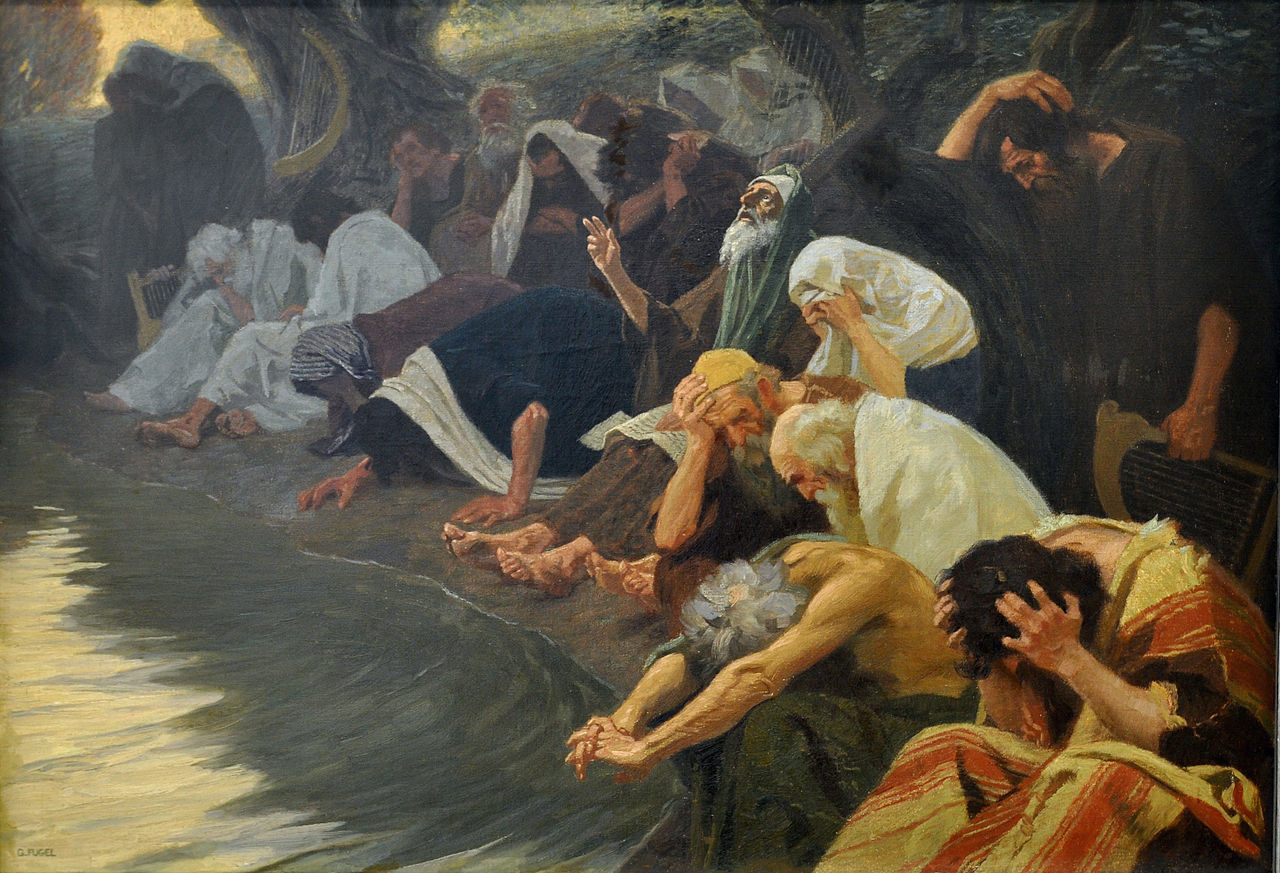Friday Poetry: DENNIS BRUTUS’ “BY THE WATERS OF BABYLON” AS AN OVERVIEW OF ALIENATION
By Saheed Sunday
By the waters of Babylon
the brackish wastes of alienness
lie like dust on heart and throat,
contour and curve of hill and field
unspeaking and meaningless
as a barbarous foreign tongue
by the waters of Babylon
we sat down and wept
the mind yearns over the low horizon
to other familiar friendly haunts
not unlike these gracious scenes
when we remembered thee
O Zion
these trees; these hills; this sky, this sun
evoke a dearness that lacerates;
the heart heels from this wounding loveliness
how can we sing our songs
in a strange land?
wordlessly
one turns from such beauty and such pain:
weeps.
In a strange land.
By the waters of Babylon
we sat down
and wept.
Dennis Brutus, a South-African poet, had a very interesting but chaotic life before his death. Being one of the leading opponents of apartheid - the official policy of strict racial segregation and discrimination against non-whites practiced in his native South Africa – Brutus’ life technically experienced a major transitioning from one imprisonment to another. Literally, one of the things that characterized the history of South Africans was the period of apartheid. In fact, it is hard to talk about South Africa as a country and not talk about the gruesome fate the non-whites had experienced in about 1948-1994. On the legislation of Apartheid in South Africa, Brittanica states:
“…when the National Party, led by Daniel F. Malan, gained office that year, it extended the policy and gave it the name apartheid. The implementation of apartheid, often called “separate development” since the 1960s, was made possible through the Population Registration Act of 1950, which classified all South Africans as either Bantu (all Black Africans), Coloured (those of mixed race), or white. A fourth category—Asian (Indian and Pakistani)—was later added. One of the other most significant acts in terms of forming the basis of the apartheid system was the Group Areas Act of 1950. It established residential and business sections in urban areas for each race, and members of other races were barred from living, operating businesses, or owning land in them—which led to thousands of Coloureds, Blacks, and Indians being removed from areas classified for white occupation.”
One could say that it was regarding this sense of alienation of the natives from their homes by the foreigners that led to Dennis Brutus writing “By the waters of Babylon”, a poem which rests on a Biblical allusion (Psalm 137). It similarly draws heavily on the history of Israelites and how they had similarly lost their homes. It is noteworthy, even, to say that Dennis Brutus’ topic “by the water of Babylon” is an adaptation of the verses of Psalm 137 which capitalizes on “by the rivers of Babylon”. It was evident enough that the South Africans’ situation during the period of apartheid was not so different from the experience of the Jews with their exile from Jerusalem. So, to say, the same way the Israelites had felt alien and hopeless at Babylon was the same way the non-whites (which the poet himself is part of) had felt. And even though the natives were still in their country, they couldn’t help but feel that they had been ostracized from the society as nothing but exiles.
In the first line, for instance, Dennis introduces us to that motif of alienation, “the brackish wastes of alienness”, so that the readers feel the same feeling of disgust that courses through him. He furthermore instantly builds upon this motif he has introduced, exposing us to the meaninglessness of the “barbarous foreign tongue” their ears have been forced to listen to. However, this feeling of disgust instantly changes to a feeling of hopelessness when the poet’s persona realizes the situation of bondage they are currently in. When they see how the city of Babylon (a biblical allusion which projects apartheid) has boxed them in, they “sat down and wept” for themselves.
It is not only the Psalm that Dennis adapts into this poem; he adapts the work of America’s first homegrown composer, William Billings, who created an anthem putting Bostonians in the role of the Judeans who were oppressed, and the British in the role of Babylonians who were the oppressors. Part of William’s line was “By the Rivers of Watertown we sat down and wept when we remember’d thee O Boston….” However, in place of Boston as William Billings had used it, Dennis Brutus uses Zion as a deliberate attempt to pronounce the promising vision of freedom and paradise (which God promised the Israelites). For the South Africans, their “Zion” is projected through the lenses of the anti-apartheid movement which was led by Nelson Mandela.
Through the visuals of a Biblical allusion of the history of Israelites and their experience in Babylon, Dennis Brutus was able to foreground the events of apartheid and what it means for South Africans. He reflects the theme of alienation through different lines, part of which was “how can we sing our songs in a strange land?”, reflecting the image of the barrier that comes with a native-foreign relationship in this period. However, Dennis paints all the gruesome images of alienation, he doesn’t leave the motif of hope behind. And that hope which was projected through the word “Zion” was later manifested through the liberation of the country by Nelson Mandela.

Saheed Sunday, NGP V, is a Nigerian poet, a Star Prize awardee, a Best of the Net nominee, and a HCAF member. He is the author of a poetry collection: Rewrite The Stars. He won the ZODML Poetry Prize; he was shortlisted for the Rachel Wetzsteon Chapbook Award, Wingless Dreamer Poetry Prize and The Breakbread Literacy Project.





